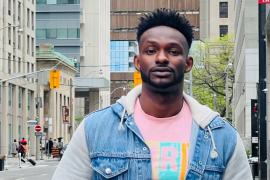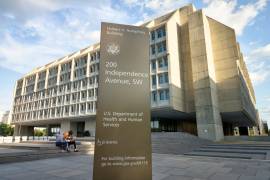This week, Cher had the internet buzzing about “turning back time” with her first awards show performance in 15 years and a rousing rendition, complete with period costume, of her 1989 hit at the 2017 Billboard Music Awards.
And while I can’t fault anyone for having nostalgia for the music of the 80s and 90s, the Texas legislature took Cher’s suggestion far too literally by passing archaic legislation, HB 3859, that would dial back the clock and allow LGBTQ youth, kin and foster and adoptive parents to be turned away by government-funded providers, and force LGBTQ young people back into the closet.
As of writing, the bill awaits Governor Greg Abbott’s signature (Texans, contact him to oppose the bill here).
We’ve outlined how dangerous HB 3859 is before, but it bears repeating. The bill prohibits the state from punishing foster care and adoption agencies if they discriminate against queer young people or prospective parents who are LGBTQ or of differing faiths, even if the agency receives government funding.
Basically, Texas legislators have stated loud and clear, in contradiction with professional standards regarding what’s good for kids, that using taxpayer money to promote particular faith-based ideology is perfectly acceptable.
And HB 3859 couldn’t come at a worse time for Texas. A federal judge has already found that Texas has insufficient family home placements, and that the physical and emotional harm suffered by children lingering in institutions is unconstitutional. The Child Welfare League of America, in a recent letter to the Texas Senate condemning HB 3859, highlighted that in 2015, there were 12,643 children in foster care waiting for a permanent adoptive family.
So why are legislators doing anything that has even the most remote risk of dissuading people from becoming foster or adoptive parents?
Sadly, we have examples of how harmful public policy prioritizing proselytizing and discrimination over the best interests of children really is. Nina Bernstein’s The Lost Children of Wilder chronicles New York City’s history of allowing foster care agencies to give preference to children of their own faith. And just last Friday, the Nebraska Supreme Court found the state’s policy discriminating against LGB people seeking to foster unconstitutional, and characterized the statement on the agency’s website that “heterosexuals only” need apply to be foster parents as “legally indistinguishable from a sign reading ‘Whites Only’ on the hiring-office door.”
Both these examples should serve as a cautionary tales for Texas, which is already spending millions in litigation over foster care. Courts rejected these injustices and, despite what HB 3859’s proponents are saying, what’s happening in Texas could result in similar harm to children, and spark more litigation while they’re at it.
It’s those specious arguments by HB 3859 proponents that I’d like to debunk here.
MYTH: HB 3859 would result in more homes for thousands of vulnerable young people.
FACT: Not a shred of evidence supports this claim.
Proponents of HB 3859 opine -- without providing any data or proof -- that the bill will open up more homes for kids in need because people of faith are currently either being turned away or will be turned away by the foster care system. Nothing in the law prohibits a person of faith or a faith-based agency from providing needed services for foster youth.
If anything, sanctioning discrimination against prospective parents who are LGBTQ or of differing faiths will likely decrease the number of homes available to young people who need them by deterring applicants. LGB people are more willing to serve as foster or adoptive parents than their non-LGB counterparts. In a memo regarding similar (failed) legislation in Florida, the Williams Institute noted that, LGB individuals and same-sex couples may find it “more difficult to serve as foster and adoptive parents, resulting in more children remaining in foster care for longer periods of time.”
The truth is that a small minority of faith-based providers with a specific ideology -- not unlike the providers in 70s era New York -- want to stay on the government payroll and promote their religious values. But foster care contracts aren’t entitlements. Foster care is a government service and Texas has a legal obligation to ensure their contract providers keep kids safe.
MYTH: HB 3859 does not sanction discrimination, and doesn’t attempt to ban anyone from becoming an adoptive or foster parent in Texas.
FACT: It does.
In an open letter sent to “Interested Parties,” a group of Texas legal scholars warn that HB 3859 is unnecessary and likely unconstitutional. They note that the bill’s “unyielding preference for certain religious liberty rights overlooks numerous important government interests -- including the need to prevent discrimination, ensure children’s welfare and protect the religious rights of children in foster care -- and threatens to violate the Establishment Clause” and “[w]hile the bill specifically does not permit agencies to discriminate on the bases of race, ethnicity, or national origin, no such exception is made for discrimination on the basis of sex, sexual orientation, gender identity, or disability.”
MYTH: HB 3859 won’t harm LGBTQ young people.
FACT: It will.
HB 3859 would embolden child-placing agencies to turn away LGBTQ young people if they don’t want to serve them.
So, how would that actually work? Will state caseworkers feel compelled to out every youth before reaching out to agencies? Will caseworkers use some gender stereotype-infused version of the Hogwarts Sorting Hat to figure out how to place kids? Every horrifying alternative equals one thing -- stigma and harm.
And what happens if you aren’t “identified,” aren’t out yet or are sorting through your identities? Let’s say you’re placed in an agency’s home and you know it was “the only home they could find.” How do know whether the home is affirming or not? Do you risk coming out? Do you risk having your parent or case manager condemn you or “pray the gay away”? Do you roll the dice, not knowing what could be next?
Not likely. What’s more likely is a return to the awful history of isolation and resulting suicidal ideation, substance use and other poor health outcomes for LGBTQ youth.
HB 3859’s proponents say that if an agency doesn’t want to place a child in care, the child in question will be served by another agency. But say, for instance, you’re a queer kid from Amarillo, TX in need of a home. And all the agencies in your area turn you away. Where do you go? To an agency in Dallas, a nearly 400-mile, six-hour drive away?
Seem absurd? Well, it’s already a problem in Texas. In 2011, 55% of children in Texas were already placed outside of their home counties due to lack of appropriate placements. HB 3859 would only exacerbate this problem.
If you’re a queer kid who doesn’t have access to another agency close by, you could end up hundreds of miles away from your friends, the court that’s hearing your case and your community. And being in or near your community has tangible benefits, not least of which is visitation with your parents – and, by the way, the Texas Department of Family and Protective Services (DFPS) itself says that visitation is essential for a child’s well-being, and vital to maintaining family relationships and cultural connections. We know that lack of family support and connections already impact queer kids especially hard and contribute to homelessness, trafficking and justice system involvement.
MYTH: Prospective LGBTQ foster and adoptive parents can just go to another agency if one doesn’t want to work with them.
FACT: Easier said than done and unjust.
Imagine a same-sex couple from that same city, Amarillo, is looking to foster or adopt. If they’ve even managed to make it past the psychological barrier of potential stigma and discrimination and step forward, what happens if they are turned away? Are they making that six-hour drive to Dallas for foster parent classes?
If there is no affirming agency in a particular area, HB 3859 requires the state to “develop one,” raising the all too familiar parallels to the segregation era and potentially costing the state millions of dollars.
MYTH: Faith-based agencies must be protected because they won’t participate in the child welfare system if required to serve everyone equally, and the venn diagram of LGBTQ people and people of faith is two circles that don’t intersect.
FACT: Literally straight up lies.
As noted by the Unites States Children’s Bureau, the federal agency that oversees and supports the nation’s foster care system, “Many religious communities welcome LGBTQ youth, adults, and their families.”
Faith-based agencies and foster and adoptive parents can (and do) support and affirm the diverse population, including LGBTQ youth and families, in Texas’s system. Proponents’ “sky is falling” tales of other systems, like Illinois, D.C. and Massachusetts, “pushing out” all faith-based agencies are false. In systems where agencies that discriminated left because they refused to comply with the law, other agencies -- including faith-based ones that abide by professional standards and respect civil rights -- stepped in to provide needed services.
MYTH: HB 3859 would legalize discrimination on the basis of religion.
FACT: Discrimination in the context of foster care is contrary to federal law.
Federal regulation prohibits discrimination against beneficiaries of federal child welfare dollars, children and parents in this case, on account of sexual orientation and gender identity. Also, pursuant to federal law, each state must ensure that its system complies with professional standards and protects the civil rights of children and families. And, of course, the U.S. Constitution protects youth and parents, including foster and adoptive parents, from discrimination.
In addition, HB 3859 is contrary to agency policy.
DFPS contracts with child-placing agencies to deliver services for children and families, and has minimum standards for those agencies. They include ensuring children’s rights are protected, including the right to fair treatment; the right to have their religious needs met; the right to not be pressured to get an abortion, give up a child for adoption or parent a child; and the right not to be subjected to demeaning behavior to embarrass, control, harm, intimidate or isolate the child.
What HB 3859 does do is create confusion. It makes some child welfare agencies think that they can discriminate against LGBTQ people and people of other faiths on the basis of their particular religious views.
In sum, there are no legitimate justifications for HB 3859.
It’s a recipe for disaster for Texas and Texas’s most vulnerable children, and treats LGBTQ parents like pariahs. Governor Abbott has one chance to stop it and, if he fails, the courts will have to take it from there.





